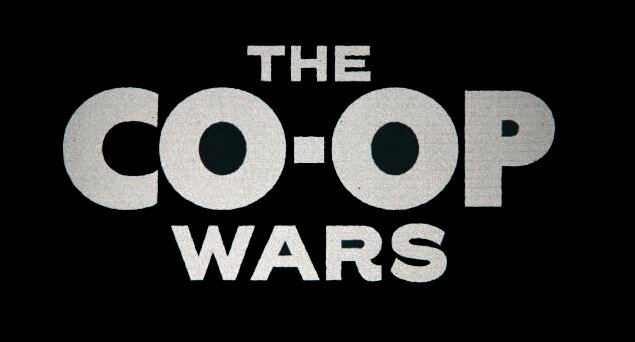We’ve posted a new trailer for our documentary-in-the-making, Radical Roots: The Story of a Food Revolution. Trying to boil down our film into a few minute summation was a struggle, especially since we are still at the very beginning of the process of editing and figuring out how best to tell the story.
Our main question is how much to talk about the “Co-op Wars,” and how we should talk about them. To some of our interviewees, the Co-op Wars, the period in 1975-76 when the Co-op Organization (CO) tried to take control of the co-ops, are already well-trodden ground. Dean Zimmerman told us he hated the term “Co-op War,” and called it “one small aberration in the evolution of decades of co-ops. I'm bored with it.” Others have worried that it is a distraction from the Twin Cities’ co-ops history of success.
On the other hand, when we talk to people not deeply familiar with the history of Minnesota Co-ops, none of them have heard of the Co-op Wars, and all of them are fascinated. “Really?!” they ask, when we tell them of occupations, violence and stark ideological divides, “A war over co-ops?” And they want to know more. It is clear to us that focusing on the Co-op Wars will bring people to the subject of co-ops who never would have paid attention otherwise.
And then there’s the question of how to talk about the conflict. Some former CO members are put off by talk of the violence that occurred, seeing it as a distraction from the issues that were at stake in the conflict: whether the co-ops were for the counterculture or the working class. To others, the violence revealed exactly what was at stake: whether the co-ops were to remain democratically controlled by the community or seized by an authoritarian cult.
These are not just abstract artistic questions, they are live issues to many of the people that were involved, people whose work we admire and who have been extremely generous to us with their time and help with this project. Since no version of events is going to reflect everyone’s version of the truth, we hope the film, including the filmmaking process itself, will be a chance for open-minded and open-hearted listening and discussion, not only about what happened to the co-op in the mid-70s, but what is happening to the food movement today.
So enjoy our latest trailer (there’ll be more to come) and join in on the discussion as it unfolds on our Facebook page.
